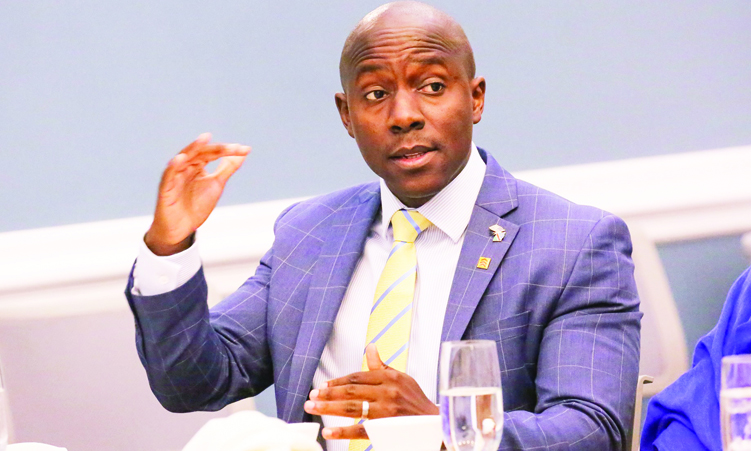Namibia’s green hydrogen commissioner, James Mnuype, says Namibia has appointed executive professionals to attend to financial and legal matters for the production of green hydrogen in Namibia.
He said this during a panel discussion on how prepared the Southern African Development Community (SADC) region is for green hydrogen production at the two-day Green Hydrogen Symposium held in Windhoek last week.
Mnyupe said professionals, led by him, will also look into environmental and technical matters for the production of green hydrogen in Namibia.
The team, he said, will work with various ministries to ensure that the green hydrogen strategy for Namibia is operationalised.
He said The Netherlands has given Namibia significant financial resources for this to be realised.
In his contribution to the discussion, Titus Mukwaso from Botswana said his country has an energy policy in place.
He said 18% of the country’s energy is derived from renewable energy sources, such as solar and biogas, while a feasibility study on the production of biofuel has also been conducted.
Mukwaso said there is a need for a feasibility study to determine the country’s potential for the production of green hydrogen.
He said it has also been found that Botswana has the potential to produce wind energy, and in Botswana’s National Determined Contributions, they aim to reduce greenhouse gas emissions by 15% through the use of wind energy by 2030.
Nico Snydell, the deputy director for energy in the Ministry of Mines and Energy, said Namibia would need to work with other SADC neighbours and to share progress in the production of green hydrogen in an effort to make the region energy secure and wealthy as far as sustainable energy is concerned.
He said Namibia is ready for the production of green hydrogen, and there is a lot of private interest to invest in green hydrogen production.
Snydell said various studies are currently being conducted to see what challenges Namibia may encounter in the production of green hydrogen.
Isaac Sako, a senior energy economist from Zambia, said Zambia has a 2019 national energy policy, but depends more on hydro-electricity and not renewables.
However, said Sako, the country has embarked on a diversification programme to tap into renewables as this involves clean energy.
He said, thus far, 36% of their urban areas have been electrified with renewable energy through the programme.
Karsten Hess, the head of the global change and climate change division at the Federal Ministry of Education and Research said efforts for the production of green hydrogen in the southern African region should bring together all the players in the field, while capacity building is also important.
He said the 2020 World Economic Forum named green hydrogen as one of the top 10 emerging technologies globally.
“There is a huge interest, and it is also seen as one of the pathways to energy transitions,” said Hess.
He said the production of green hydrogen is central to what they want to achieve in Germany and therefore, in 2021 they came up with the Green Hydrogen Roadmap to help increase investment in this sector.
Held under the theme ‘Green Hydrogen in Practice: Pilot Projects and Youth for Green Hydrogen Scholarships’, the symposium was organised by the Southern African Science Service Centre for Climate Change and Adaptive Land Management, with financial support from the Federal Republic of Germany.
Stay informed with The Namibian – your source for credible journalism. Get in-depth reporting and opinions for
only N$85 a month. Invest in journalism, invest in democracy –
Subscribe Now!










